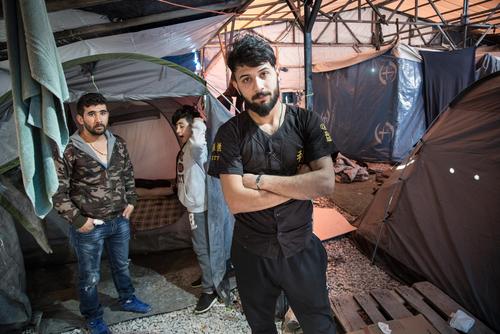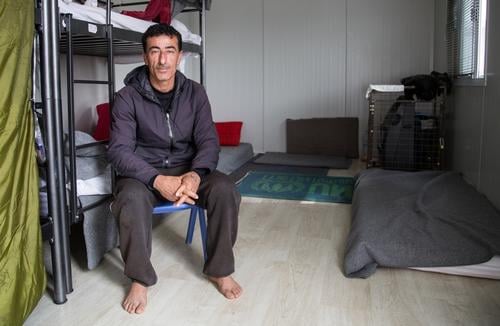MSF calls on authorities to immediately relocate asylum seekers on Greek islands to the Greek mainland.
Athens – A mental health emergency for asylum seekers is unfolding on the Greek islands, largely created by poor living conditions, neglect and violence, according to a report by Médecins Sans Frontières (MSF). MSF calls on the European Union (EU) and authorities in Greece to stop inflicting additional suffering on people who are already traumatised, and to immediately relocate all asylum seekers from the islands to the Greek mainland, where they have a greater chance of accessing proper accommodation and health services.
“These people have survived bombing, extreme violence and traumatic events in their home countries or on the road to Europe,” says Jayne Grimes, manager of MSF’s mental health activities on the island of Samos. “But shamefully it’s what they face on the Greek islands that leads them into despair, hopelessness and self-harm. Every day our teams treat patients who tell us that they would prefer to have died in their country than be trapped here.”
As detailed in MSF’s report Confronting the mental health emergency on Samos and Lesbos, the scale of the needs for mental healthcare and the severity of patients’ conditions have overwhelmed the capacity of mental health services on the islands.

Between June and September, an average of six to seven new patients per week arrived at MSF’s clinic on Lesbos in acute need of mental health consultations following suicide attempts, incidents of self-harm, or psychotic episodes. A 50 percent increase in the number of patients to our clinic compared to the previous trimester was also reported.
Among the factors aggravating people’s mental distress was violence experienced either on the journey or in Greece, according to many of MSF’s patients. A survey conducted by MSF and Epicentre in Samos in late 2016 and early 2017 reported that close to half of those surveyed had experienced violence while passing through Turkey, and close to a quarter had experienced violence since arriving in Greece. The survey also found that people who arrived on Samos after the EU-Turkey deal was signed in March 2016 reported more violence in Turkey and Greece than those who arrived before the deal came into force. Between 50 per cent and 70 per cent of that violence was allegedly committed by state authorities.
MSF calls on the Greek authorities to immediately relocate asylum seekers to the Greek mainland, and as an urgent measure to step up the provision of mental healthcare, including psychiatric care and other crucial services, to meet the needs of these extremely traumatised men, women and children.
“Moving people to the mainland is a humanitarian imperative,” says Louise Roland-Gosselin, MSF’s advocacy manager in Greece. “European and Greek authorities are directly responsible for this suffering. People’s extreme vulnerability and the complete failure of systems on the islands leave them with no other choice.”
MSF has been providing medical and humanitarian assistance to asylum seekers and migrants in Greece since 1996 and today, provides medical services in Athens, Attica, Central Greece and Epirus as well as on the islands of Lesbos and Samos. Between January and August 2017, MSF medical teams in Greece provided more than 21,600 consultations.
MSF has been working on Lesbos since July 2015. Between January and August 2017, MSF’s team on Lesbos provided 2,100 medical consultations, 1,060 sexual and reproductive health consultations and 1,270 clinical psychological care sessions.
MSF runs a temporary shelter for vulnerable people in Vathy on Samos which can host up to 80 people.. Between January and August 2017, MSF’s team on Samos provided 460 clinical psychological care sessions.



